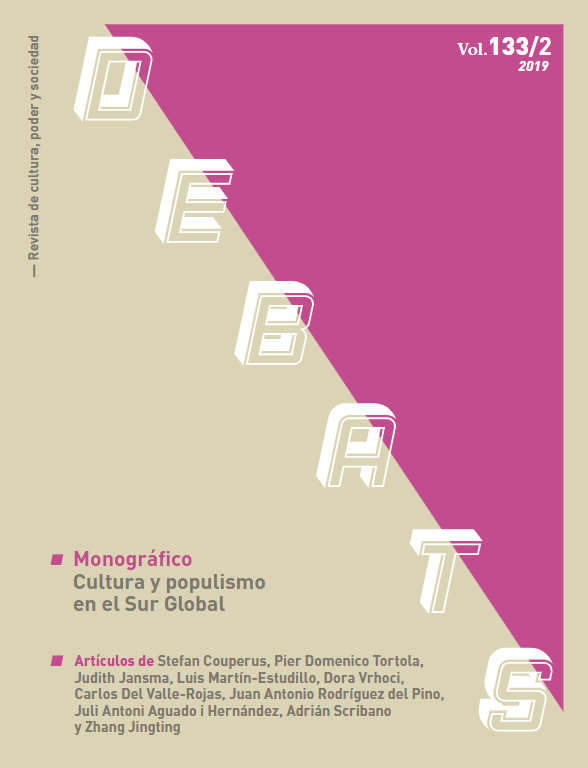A Critique of Civilizing Rationality: Marginality Production Strategies
DOI:
https://doi.org/10.28939/iam.debats.133-2.6Abstract
The radical distinction between civilization and barbarism used in the discourse of the national states of Chile and Argentina during the second half of the XIX century, not only was used to justify the genocidal military intervention of
the territories inhabited by the mapuche indigenous from the south of both countries; but also inaugurated a conflictive relationship that remains to the present. The main objective of the paper is to identify the scope of the “civilization project”
initiated during the second part of the 19th century and expressed during the 20th and 21st centuries through different and broad forms of marginalization, both ethnic and -by extension- immigrant, the criminal and LGBT+ groups; in such a way that it is a historical, systematic and institutionalized process of producing marginalities, which considers various production strategies of the intimate enemy, especially from the cultural industry available in each time. The results show how “marginal/marginalized” is produced and reproduced, through policies of death, dispossession, inclusion/exclusion, in a constant relationship from moral, criminal and neoliberal rationalities.
Downloads
Downloads
Published
How to Cite
Issue
Section
License
Without prejudice to the provisions of article 52 of Spanish Law 22/1987 of November 11 on Intellectual Property, BOE (official state bulletin) of November 17, 1987, and pursuant to said legislation, the author(s) surrender(s) free of charge its rights of edition, publication, distribution and sale of the article, for its publication in Debats. Journal on Culture, Power and Society.
Debats. Journal on Culture, Power and Society is published under the Creative Commons license system in accordance with the «Recognition - Non-Commercial (by-nc) modality: The generation of derivative works is permitted provided that commercial use is not made. Nor can the original work be used for commercial purposes».
Thus, when the author submits his/her contribution, he/she explicitly accepts this assignment of publishing and publishing rights. Authors also authorize Debats. Journal on Culture, Power and Society to include their work in an issue of the journal to be distributed and sold.











